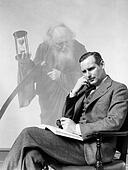And the answer is, according to Jason Fell of FOLIO magazine:
new technology! Yes, all the new e-readers and iPads, etc, have opened up all kinds of new opportunities and venues for publishers...but, like roses, they come with some thorns!
From Jason Fell today:
“I’m far more worried about 500 million people on Facebook than I am about 2 million people watching Fox.”
That’s what CNN U.S. president Jonathan Klein said Wednesday during the opening keynote of Bloomberg BusinessWeek’s two-day Media Summit, held here for the seventh year. An overarching topic of a number of the sessions was about the confluence of traditional publishing/advertising/distribution with emerging technologies. In his discussion with BusinessWeek editor Josh Tyrangiel, Klein, who led CNN to its most profitable year in 2009, said the company’s growth areas are online (including CNNMoney.com), mobile, U.S. cable, and said it is placing a “greater emphasis” in online video.
But while evolving technologies are offering CNN some of its biggest opportunities, Klein said they also are facilitating its biggest threats. “The competition I’m really afraid of are social networking sites, not only because of the sheer numbers of people who engage in Facebooking and Tweeting,” he said. “It used to be that Internet prime time was daytime, but now you come home and you engage in the world of Facebook, and so that’s just an alternative that threatens to pull people away from us. On top of that, if you think about it, the people you’re friends with on Facebook or the people you follow on Twitter are trusted sources of information.”
The conversation surrounding the merging of content with new technologies, and the inherent difficulties associated with it, continued during a morning workshop. One panelist, Spin magazine founder Bob Guccione Jr., said that while “print is not dead,” the wave of new tech coupled with the economic fallout has weeded out the industry’s most “inferior and inadequate” publications. “There are a lot of boring, generic, afraid, unimaginative, unopinionated magazines and the market is telling us that we don’t need them,” he said. “And e-reader devices have not yet scratched the surface of ‘saving print.’ They’re not the future of magazines. Magazines are the future of magazines. The people who make them need to find better new ways to captivate their audiences, or they will fail.”
But one way some publishers are hoping to “captivate” audiences is by producing content for the new crop of e-reader devices. Bob Nell, director of business development of Sony’s digital reading business division, said a lot of the necessary details, like revenue sharing models and content control, are still being hashed out. “Should the publisher control the iterations of their magazine across different platforms and control pricing, etc.? That’s all playing out,” he said. “Generally, I think the publishers should manage all of that.”
The Advertising vs. Pay Wall Conundrum
What would a conversation about the collision of traditional publishing and new technologies be without talk about ways to monetize it? Panelists kicked off an afternoon workshop called “Models for Change: Experimenting with Subscriptions, Pay Walls, Display and Search Advertising, Syndication, Live Events and Brand Extension Opportunities,” by dredging up Wired editor Chris Anderson’s well-known “freemium” concept—offering basic content/services online for free while charging a fee for premium features. “Unless the price of creating content becomes free, just because content is online doesn’t mean it should be free,” argued CNNMoney.com senior vice president of sales Liberty Carras. “When value becomes established, content is something that should be charged for.”
While developing multiple content platforms and diversifying revenue streams is a top priority for publishers like Conde Nast, Julie Michalowski, the company’s vice president of business development for its consumer marketing division, said the publisher is not considering erecting any pay walls. “What we want to continue to do is to build digital relationships so that we can have a multi-channel relationship with our consumers that includes print and includes other ways that they want to access us,” Michalowski said. The trick, she said, is for publishers to find a balance between “discoverability and profitability.”
Marc Ruxin, executive vice president and chief innovation officer at McCann WorldGroup San Francisco, said publishers and advertisers need to develop new ways to make online advertising effective for both parties. One example he noted was allowing the consumer to determine the types of ads they want to see on the sites they frequent.
“Content has been subsidized by advertising since day one, but display advertising doesn’t cut it now,” he said. “New models need to emerge to continue to support content creation.”










